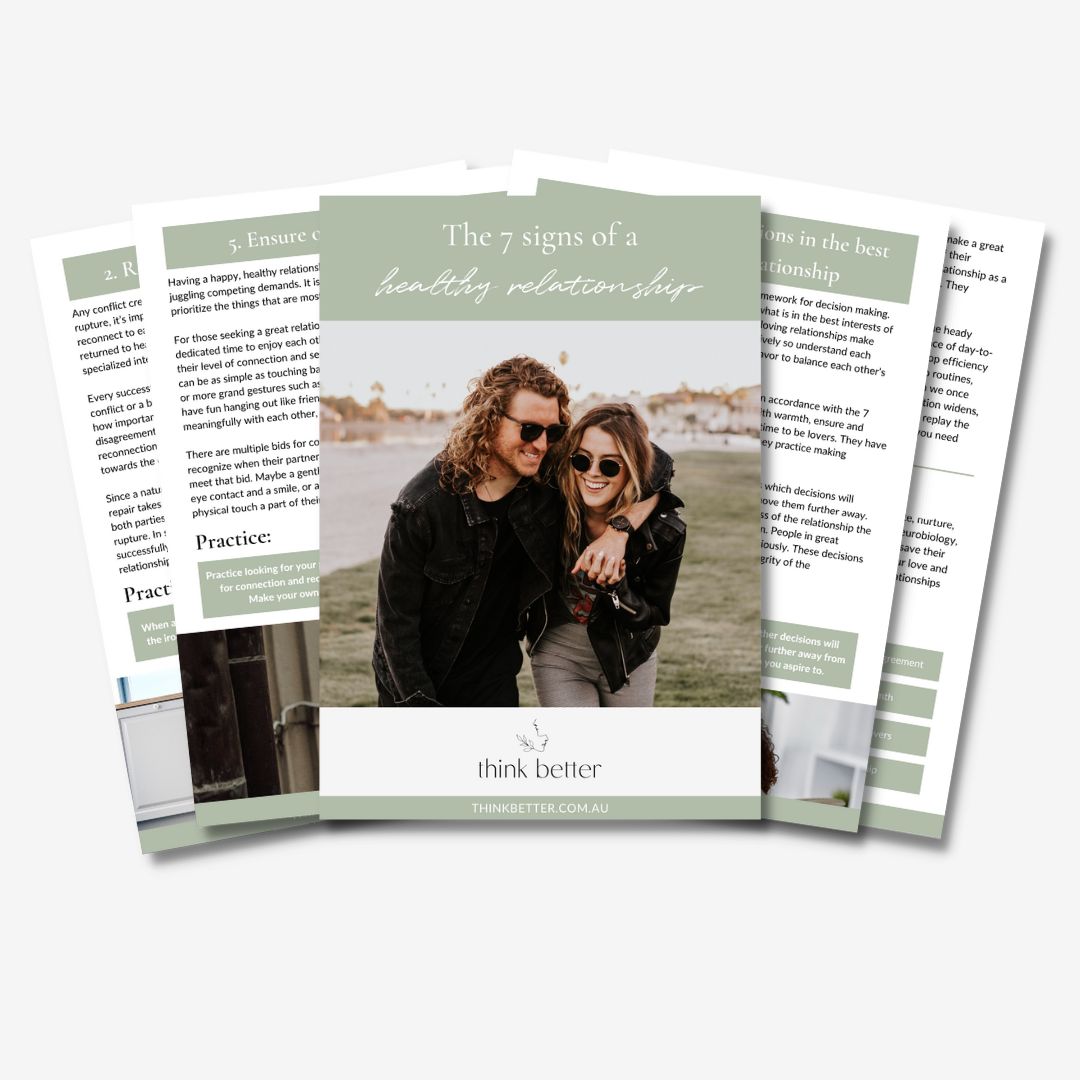You probably already suspect that you take on too much responsibility for the outcomes, happiness, and wellbeing of those around you. Perhaps you are even proud of this at times, while at other times you feel the immense weight of it. While a healthy sense of responsibility can feel like a strength it can also flip over to the dark side and become problematic. Unfortunately, feeling overly responsible for others can be a recipe for your own burnout and unhappiness.
Here are 7 crucial signs you are overly responsible:
1. You are the go-to person people seek out – a little too often.
You are seen as competent and capable, and people seek you out to help with what they are dealing with. You try and stay on top of all the things that people expect of you, and from you. You remember birthdays, key events, and check in on people regularly. This can be healthy and functional at times and a real strength. You juggle everything and enjoy your capability. However, you can become very uncomfortable when you start dropping things. You feel out of control and overly worried that you can’t manage everything – rather than examining whether there were too many balls to juggle in the first place! You are not in a circus. (Unless you are. In that case, congratulations, keep on juggling.)
2. You put everyone else’s needs first and regularly neglect your own needs.
It is often seen as a virtue to put others’ needs before your own. We learn right from early childhood to consider the needs of others and while this is an important relational skill, it can be taken too far as we age. While modern society is largely secular, organised religion has espoused for centuries the virtue of self-sacrifice for the sake of others. Even now, there is still a strong sentiment that putting your own needs first is selfish. There will be times when you genuinely enjoy putting others first and it feels good to do so. However, when you too often neglect your own needs and self-care you are in danger of becoming depleted, overwhelmed, and unwell.
3. You say Yes when you’d prefer to say No.
There are many times in life that you have to say Yes to things when you would prefer to be doing something else. That is part of being an adult. This is particularly pertinent to work, when you must do what you are responsible for even when you don’t agree or think it could be done in a better way. It happens socially too. You may be invited to an important event for a friend or family member when you are tired or would rather be at the football. Sometimes you have to say Yes because it is important to your livelihood or relationships. However, sometimes it is more appropriate to say No and take care of yourself. It can be hard to discern the difference sometimes. Consider how many times you say Yes when you would rather say No and if it happens most of the time, something needs to change.
4. You feel resentful or annoyed by others who are not as responsible as you.
Resentment is a signpost your needs are not being met. Interestingly, resentment is intermingled with another uncomfortable emotion – envy. That may not quite fit the first time you read this but think more deeply. Do you feel annoyed by the irresponsibility of others and feel that it then falls on you? Does it annoy you that they can just cruise through without thinking things through properly or taking the appropriate action? Do you wish you had some of the freedom that others who are not as responsible as you have? If you answered yes to these questions, the next blog, “How to stop feeling so responsible for others” will give you a powerful new way of viewing your responsibility for others.
5. You feel overwhelmed and weighed down emotionally.
Taking on too much responsibility will often result in feeling emotionally burdened, heavy, and overwhelmed. If things go wrong, you feel the full weight of it rather than seeing yourself as a small part of a bigger picture. You expend a lot of emotional energy making allowances for others or managing your own emotions in response to what is happening to them. Consider your energetic resources as a fuel tank. You have a certain amount your tank can hold, and you will expend your energetic fuel rapidly when you are overly responsible for others. If you are constantly giving out your energy into the world without replenishing it your tank will empty. Which leads us to the next sign that you are struggling with over-responsibility…
6. You often feel exhausted.
When you consider the other points above, how could you not be exhausted? Enough said. Let’s move onto the final sign.
7. Even when you feel exhausted you can’t stop.
You know you have taken on too much. You realise you have said Yes too often. You are not being your best self as you are tired and get annoyed and frustrated by those not doing enough. You pick up the slack. Your responsibilities keep getting in the way of your rest, self-care and engaging in the life-enhancing things that will replenish your tank. You regularly feel heavy, exhausted and on the cusp of burn-out, yet you still say Yes. You can’t stop. Something has to change, or you will fall over.
It can be difficult to stop feeling overly responsible for others when you are so practiced at it. It will feel uncomfortable and even seem selfish to stop it. Yet stop it, you must. For you and for those around you.
Stay tuned for the next Wednesday Wisdom when we look at “How to stop feeling so responsible for others”.




Thank you, Amy. As you know, I am a champion at feeling responsible for everyone in my family and saying Yes when I want to say No. However, this year I have been doing just that, and have decided to take one day a week when I say No to everyone and just do things for myself. However, it is still hard not to put others first, and having just returned from eight days in beautiful Apollo Bay, and feeling now the benefits of that, I realise just how much I needed to have that time away from ‘life’ and all its busyness!
You are not alone Carol. What a great strategy to have set days when you give yourself permission to consciously say No to others and Yes to yourself. I acknowledge it’s not easy yet it is so important. While they may not recognise it at first, those around you will benefit as you become happier, healthier and able to give what you can free from resentment.